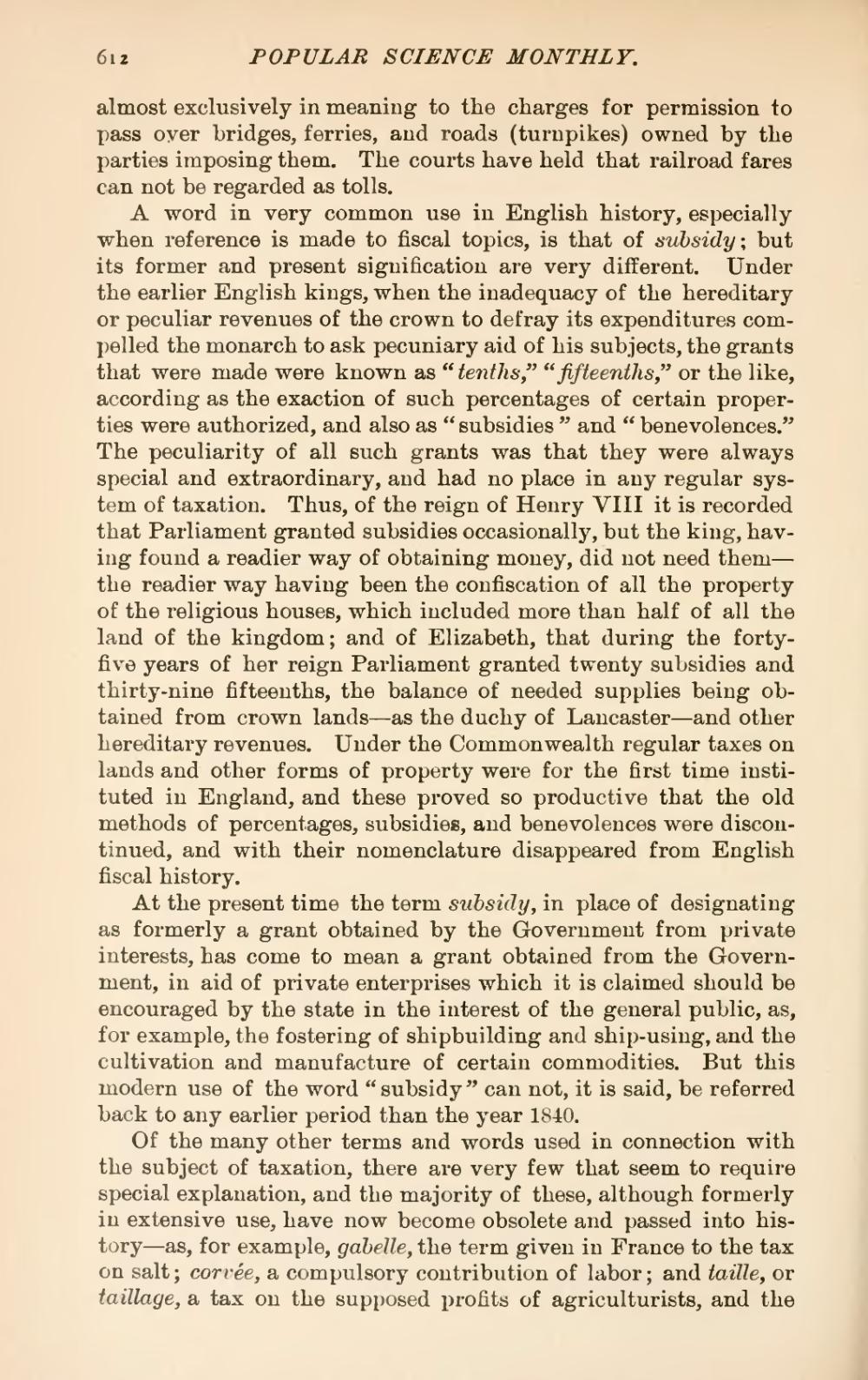almost exclusively in meaning to the charges for permission to pass over bridges, ferries, and roads (turnpikes) owned by the parties imposing them. The courts have held that railroad fares can not be regarded as tolls.
A word in very common use in English history, especially when reference is made to fiscal topics, is that of subsidy; but its former and present signification are very different. Under the earlier English kings, when the inadequacy of the hereditary or peculiar revenues of the crown to defray its expenditures compelled the monarch to ask pecuniary aid of his subjects, the grants that were made were known as "tenths," "fifteenths," or the like, according as the exaction of such percentages of certain properties were authorized, and also as "subsidies" and "benevolences." The peculiarity of all such grants was that they were always special and extraordinary, and had no place in any regular system of taxation. Thus, of the reign of Henry VIII it is recorded that Parliament granted subsidies occasionally, but the king, having found a readier way of obtaining money, did not need them the readier way having been the confiscation of all the property of the religious houses, which included more than half of all the land of the kingdom; and of Elizabeth, that during the forty-five years of her reign Parliament granted twenty subsidies and thirty-nine fifteenths, the balance of needed supplies being obtained from crown lands—as the duchy of Lancaster—and other hereditary revenues. Under the Commonwealth regular taxes on lands and other forms of property were for the first time instituted in England, and these proved so productive that the old methods of percentages, subsidies, and benevolences were discontinued, and with their nomenclature disappeared from English fiscal history.
At the present time the term subsidy, in place of designating as formerly a grant obtained by the Government from private interests, has come to mean a grant obtained from the Government, in aid of private enterprises which it is claimed should be encouraged by the state in the interest of the general public, as, for example, the fostering of shipbuilding and ship-using, and the cultivation and manufacture of certain commodities. But this modern use of the word "subsidy" can not, it is said, be referred back to any earlier period than the year 1840.
Of the many other terms and words used in connection with the subject of taxation, there are very few that seem to require special explanation, and the majority of these, although formerly in extensive use, have now become obsolete and passed into history—as, for example, gabelle, the term given in France to the tax on salt; corvée, a compulsory contribution of labor; and taille, or taillage, a tax on the supposed profits of agriculturists, and the
